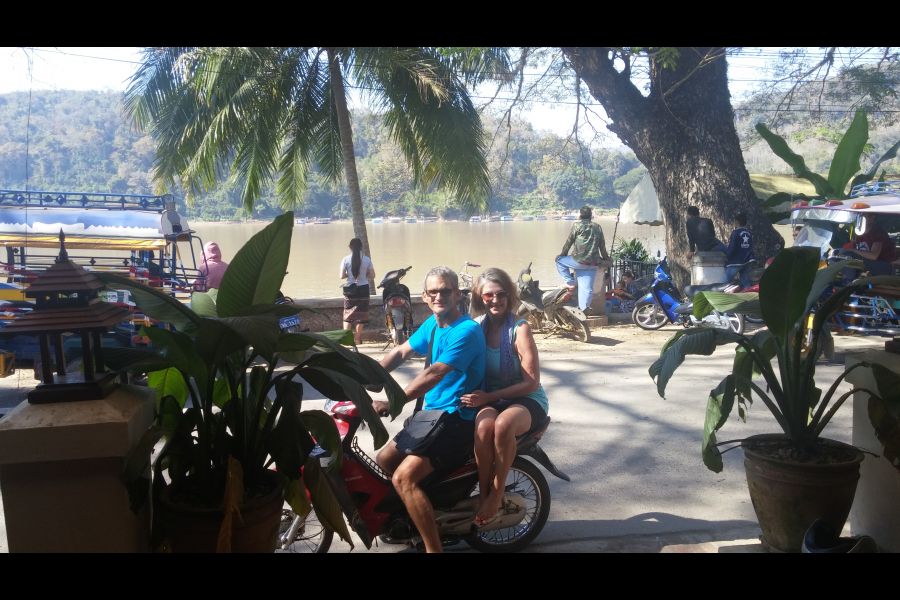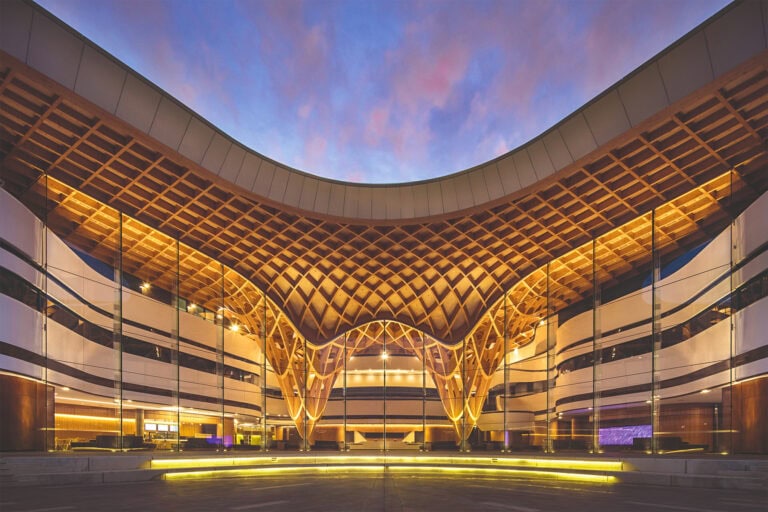Graham McMillan
Special to The Lake Report
How much “stuff” do you own? You’ve probably never done an inventory, but you know it’s a lot.
Nature abhors a vacuum, we are told, and so it is that empty spaces in our homes cry out to be filled — and continue crying, while our stuff accumulates, gradually filling the garage, the basement, the spare bedrooms. It is an embarrassment of riches; we are awash in stuff.
Don’t get me wrong, I’m no Gandhi. I enjoy stuff as much as the next guy. It’s comfortable, comforting, and much of it is actually useful and necessary.
But experiences, the happiness experts tell us, are a far better route to contentment than possessing more stuff. As retirement beckoned, my wife and I decided to heed these experts.
We determined to sell the house, leave the confines of our comfortable western bubble, pare down our possessions, and travel the world together during this golden moment in time where opportunity, interest, finances and good health intersected.
But what to pare, and what to keep? Granted, we could rent a big storage unit and store virtually all our worldly goods. But since we planned to be gone for multiple years, the accumulated storage costs made it more economical to minimize, dispose of as much as possible, and upon our return, replace only what we needed. For planning purposes, we decided to keep only what would fit in a 5-foot by 5-foot storage unit.
In our favour, we are a childless couple, so we only had our own stuff to deal with. And we already fancied ourselves minimalists. Despite this, it was still daunting how much we owned.
We first addressed clothing. My wife retired first and over the next several months, she gave away most of her sizeable wardrobe of office attire. Watching her lady friends enjoy free “shopping” excursions in her closet was a cathartic experience. In due course my retirement day arrived, but oddly, when I emulated her lead, the hordes of “shoppers” eager to snap up my dapper clothes never materialized, forcing me to donate all but what I would need for our travels.
We began a series of successive waves of household paring. The first wave was the “easy” round; this was things we didn’t really want or need in the first place, but hadn’t gotten around to tossing — old electronics, tools we never used, unwanted gifts, car parts, a paraglider I hadn’t flown in the last decade, things we discovered in little-used drawers.
As we pulled into the nearby Goodwill pick-up site time and again, my wife’s convertible car piled high, we were soon on a first-name basis with the staff. The weekly garbage pickup became epic, using containers borrowed from neighbors. Craigslist helped a lot.
The next round of paring involved stuff that could be economically replaced in a few years’ time. Electronics become cheaper each year, and often sport new features. Styles and fashions change. There was little value in returning to a storage unit filled with obsolete or outdated things.
So we sold our TVs, stereos and other electronics, or gave them to friends. We chose not to keep sofas and other large furniture items. Several items, including a leather sofa, were sold through a consignment store. Although the merchant took a hefty percentage, it was still better than paying for storage. When the time comes to replace them, we can always check back at these same consignment stores.
Our family friends’ children were starting piano lessons, so we loaned them our lovely upright piano. They are enjoying it for now, and in five years’ time, we will reassess depending on whether the kids are still into piano. Likewise several comfy chairs and recliners were loaned to friends for their use, on the condition we might or might not reclaim them some day.
Our beloved cappuccino machine went to our foster daughter. A bed frame and dresser went to a young lady who was furnishing her own apartment for the first time. Mattresses were a particular problem to dispose of, because many charities won’t accept them, but we ultimately found a group that accepted them for refugees south of the border.
Books posed a singular problem for me. My book collection was not vast, but it wasn’t tiny either. The mere presence of these books in our home gave me some pleasure. But the reality is, I knew I wouldn’t read most of them ever again. And if I did choose to enjoy them, it would be in audible format, which I generally prefer over print.
The physical books were just decorative souvenirs and an ego crutch when I wanted to appear or feel literate. I donated boxes of them to the local library.
The cloud helped tremendously. I scanned many of our important documents and records. Fortunately, I had digitized and indexed most of our photographs years ago; I can access them quickly and easily from anywhere in the world. It had been a laborious but worthwhile process.
But we hadn’t destroyed our original physical photo albums, even though we hadn’t opened them in years. Reluctantly, I took this final, irreversible step, which was strangely disconcerting.
We saved the most precious of our kitchen dishes and cutlery. Many other items went to Goodwill, but only after a friend guided my wife through the thought process of how easily much of it could be replaced. We preserved the art and photography on the walls of our home, and several pieces of small furniture that meant something to us.
We had two cars, one of which was leased. Fortunately the lease term was nearly up, so we simply returned it to the dealership. We left the other with a friend, who sold it privately for us. Last of all, we found loving homes for our two beloved cats. We both agreed they were among the most difficult “possessions” to shed.
It’s hard to describe the feeling that our remaining earthly possessions now fit inside such a tiny space. It hearkened back to when we were 18 and first leaving for college, when all our worldly possessions fit neatly inside our car. It was nearly that exhilarating, and nearly that scary.
And then we headed off on our grand adventure, with two suitcases each in tow, and my bicycle. In hindsight, I would say even then, we seriously over-packed.
I won’t understate the difficulty of the process of getting to that stage, but I can say the result has been so worth the process. We feel light and unencumbered as we travel the world. The occasional lack of creature comforts has only served to make us even more appreciative of all the good things we have in our lives, both physical, social and experiential.
Far from suffering, we have been humbled and amply blessed along the way by family, and by friends old and new, whose remarkable generosity and hospitality have made our adventure so very special. Their open sharing of their homes, their social circles, and their lives has touched and enriched us deeply. It’s also brought us into contact with many others whose lives are far less rich than ours in terms of opportunity and physical well-being.
Our journey isn’t for everyone, and I don’t mean to imply a value judgment on others who, for a thousand good reasons, choose a more conventional path. It’s just our unique journey.
For us, paring down has made us more thankful, and has made us appreciate just how rich and blessed we all are, how little we truly need, and what things in life truly matter.
Sure, the stuff inside that five-by-five storage unit is important. But there’s so much more to experience in the big world outside it.
Travel light.







